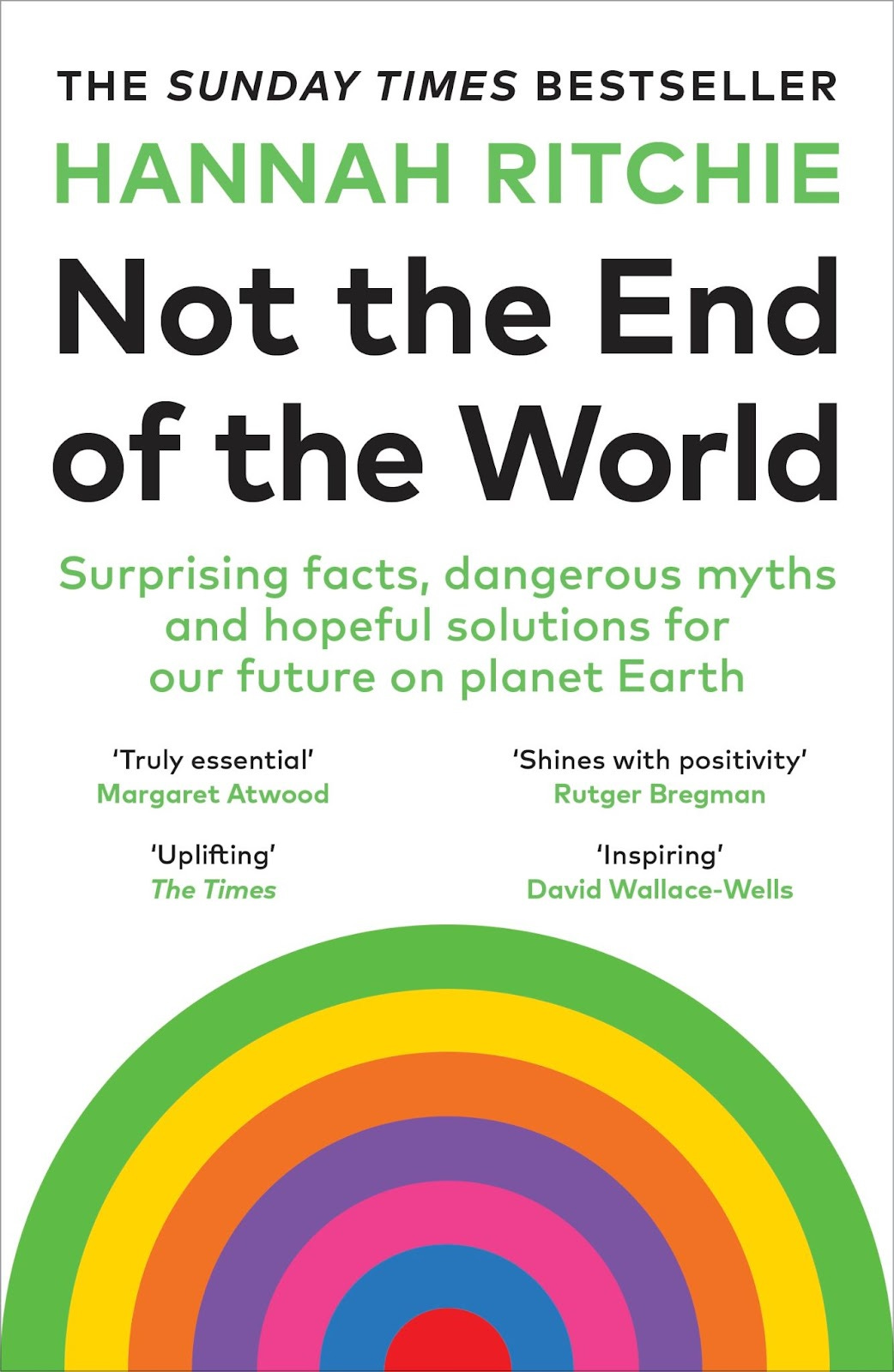My book — Not the End of the World — is out in paperback in the UK today
Exploring seven of our big environmental problems, and how to solve them.
In January, my first book — Not the End of the World — came out in hardback (and e- and audiobook formats) in the UK and the US. It has been trickling out in translations and other markets since then (with many more translations to come).
Today it comes out in paperback in the UK, which is exciting!
If you’ve already read it: thank you very much. I know committing to a book is quite an investment (both in terms of time and money).
If you haven’t, and you’re a follower of this Substack, then I think you’d enjoy it. It looks at our environmental problems through the lens of data, which is exactly the theme of this newsletter.
Despite the media focusing almost exclusively on climate change, this is only one chapter of the book. In the others, I explore air pollution, deforestation, food systems, biodiversity loss, plastic pollution, and overfishing. I chart the path of how we got into this mess, what progress has been made, and what we need to do next.
Importantly, I look at whether solving these problems is also compatible with improving human wellbeing. I think so. In the past, there were very strict trade-offs between development and environmental damage. I don’t think that needs to be the case in the future.
Since the book came out, I’ve heard from many people who were inspired enough to make big changes in their lives to get involved in building solutions and solving these problems. People have literally switched career paths.
We’ve been so hard-wired into thinking that these problems are unfixable that I think many people have switched out. It seems that once you give people the sense that they are tractable — hard but surmountable — they get motivated to get out and make it happen.



I finally got around to reading the book a couple months ago so let me take this opportunity to say I found it excellent throughout. Thank you for writing it!
When writing a book like this it must be so tempting to play to the prejudices of one political faction or another, or to decide on a particular narrative and then let the narrative dictate the details. The best thing about this book is that it does neither of those things. It's driven instead by the data and by genuine curiosity and a desire to figure out answers to some important problems. Even when the answers are tentative or might occasionally turn out to be wrong, that attitude lifts this book above so many others.
I think your book makes a nice companion to Factfulness by the Roslings, focusing on environmental issues that didn't get so much attention there, given the authors' backgrounds.
I could raise many questions about technical details in the book where I'd like to learn more. Obviously no book like this can provide absolutely definitive answers to all the questions it raises. Putting the more technical questions aside, though, what nags at me most is a question raised by the book's basic framing: Just how prevalent is the attitude that humanity is doomed due to climate change? I looked up the survey you cite and it's quite striking at face value, though it's still just one survey and it would be interesting to try asking the question in other ways, and to other groups, and to dig a little more deeply into where the respondents got that idea and how exactly they think climate change will wipe us out. I don't think half the young people in my local area (Utah, USA) would say they think humanity is doomed due to climate change, though my area could be unusual in this respect.
It’s a brilliant book. I’m a recent graduate of an International Development Master’s program, and this book filled me with renewed purpose that I’m on the right path in life. Inspiring, informative, if you read one book this year make it this one.